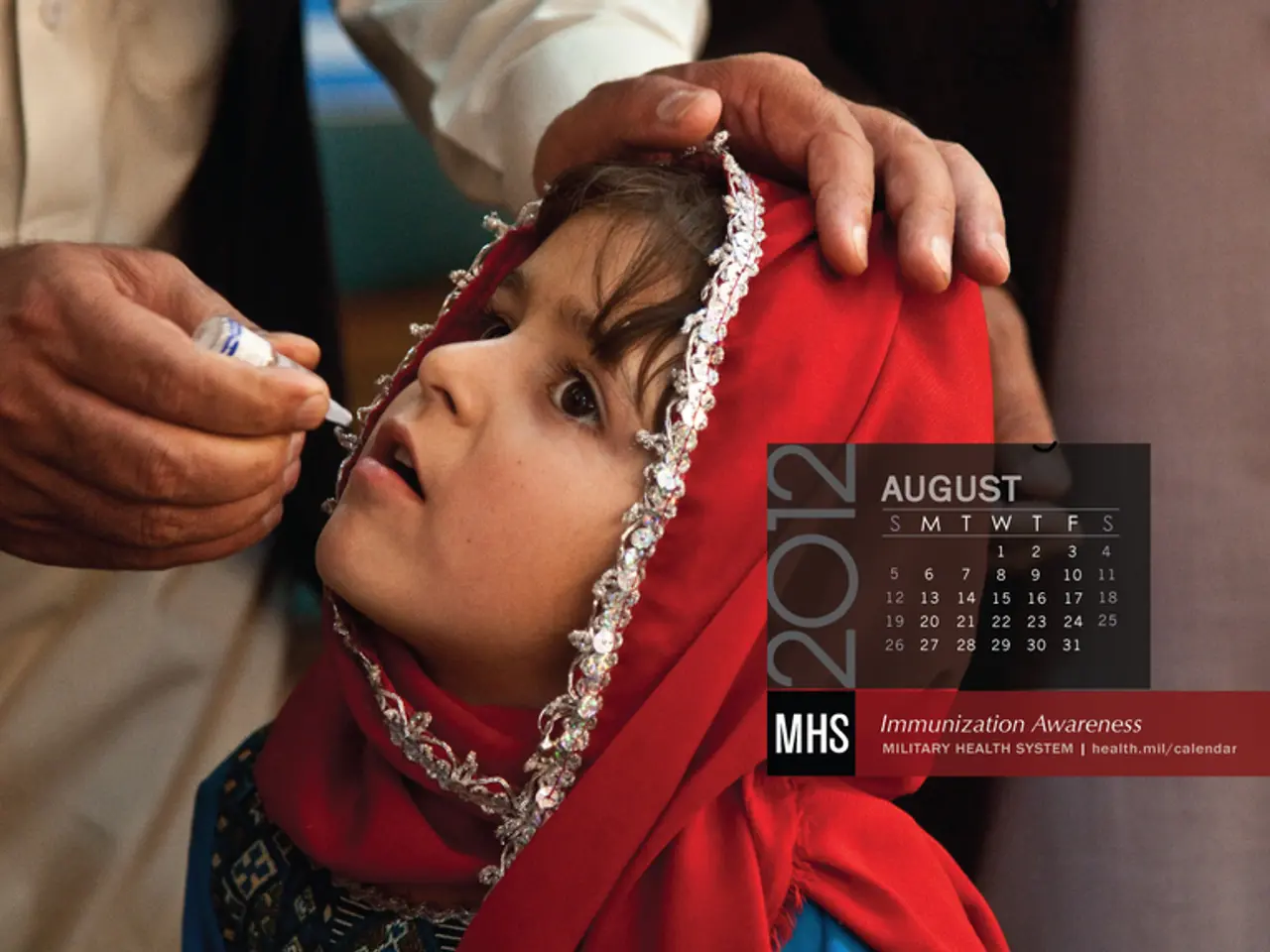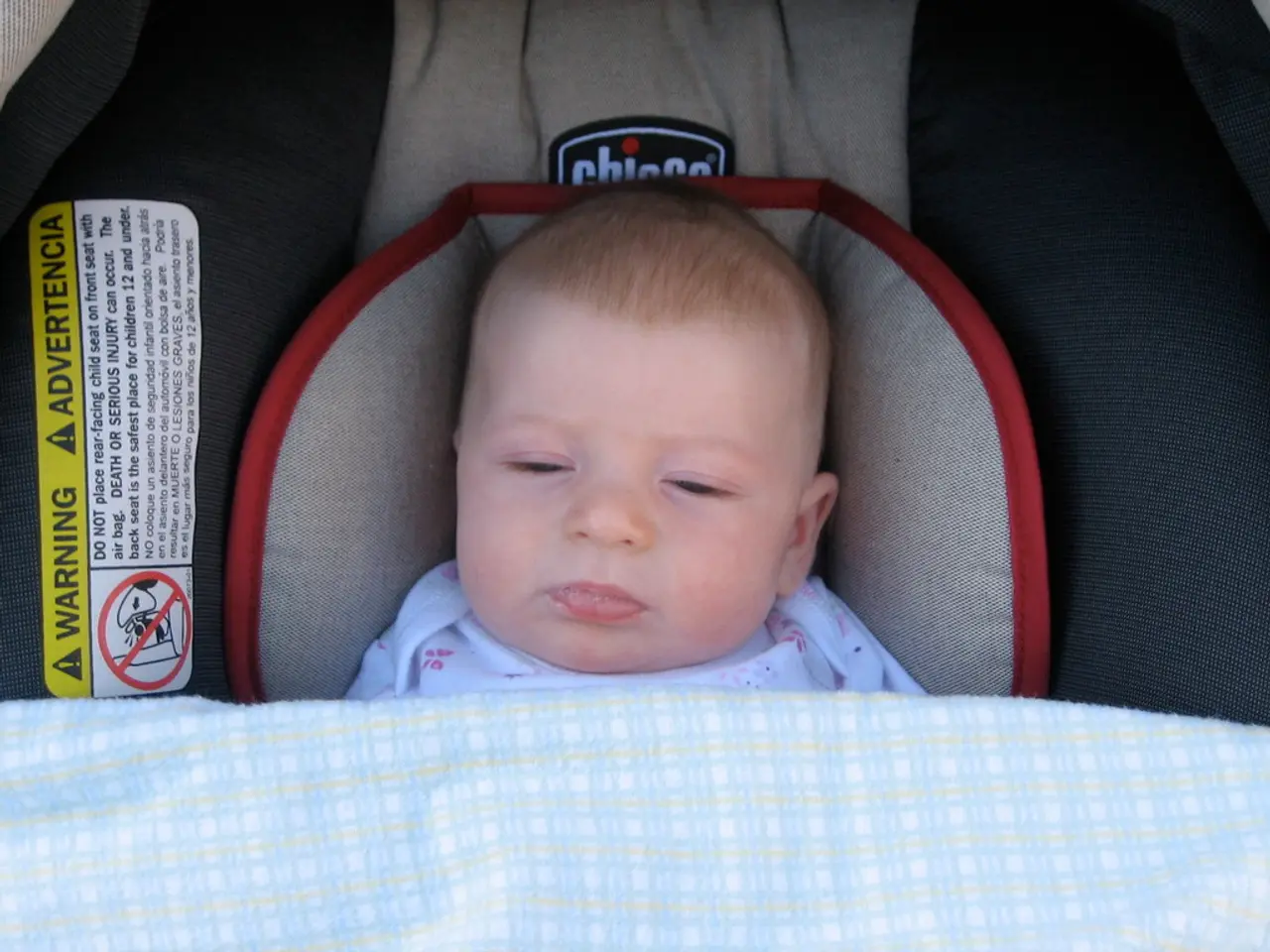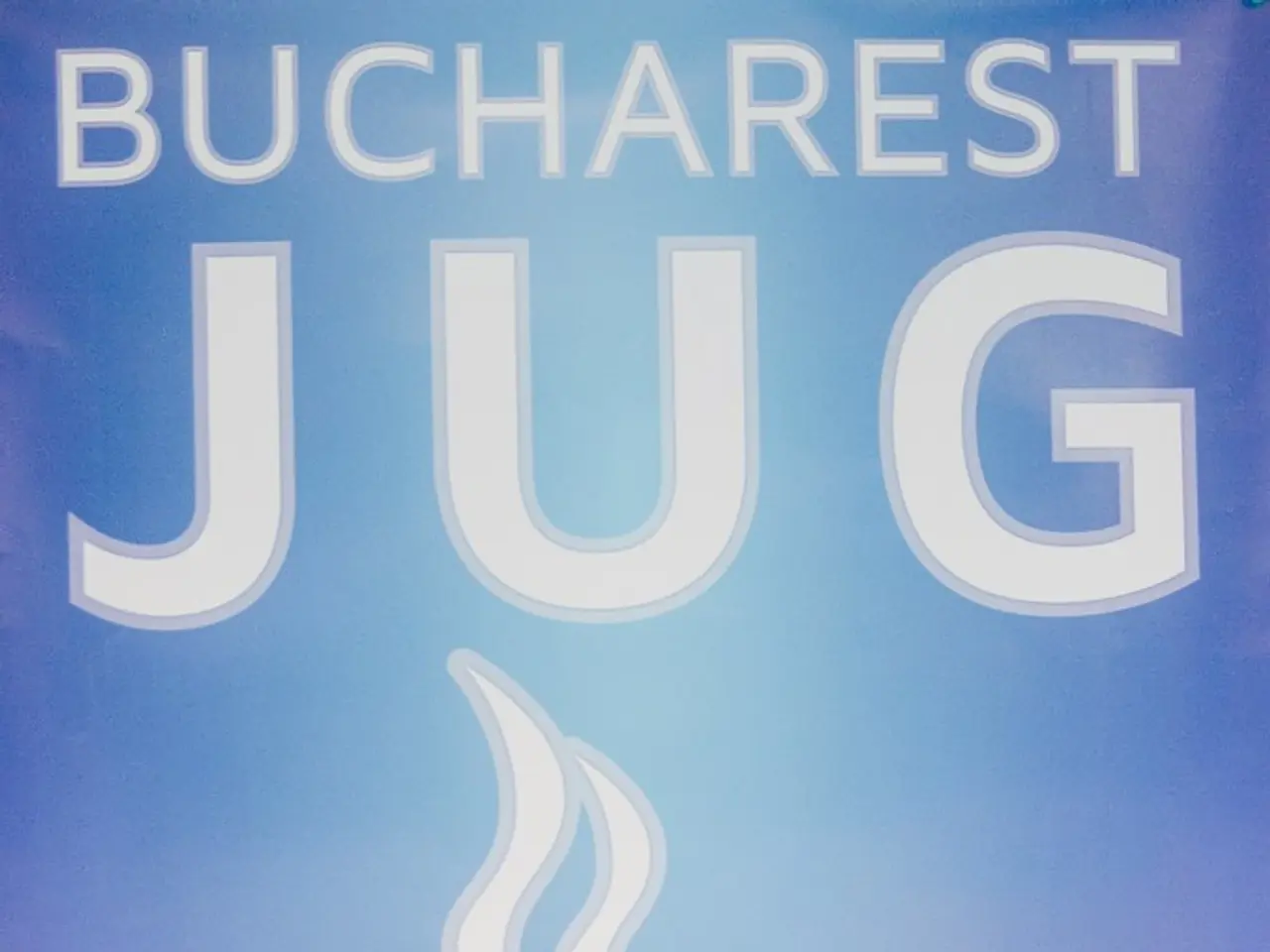Ensure a secure future for our children by administering vaccinations to them
In July 2025, Kenya conducted a monumental immunization campaign, vaccinating over 16.1 million children against Typhoid Conjugate Vaccine (TCV) and Measles-Rubella (MR). This campaign, spanning 10 days, marked one of the largest immunization drives in the country's history [1][3].
The campaign aimed to reach over 74,000 "zero-dose" children - those who had never received routine immunization before - signifying significant progress towards more inclusive healthcare [1][3]. Vaccines were made available at various accessible venues including schools, churches, mosques, markets, public health facilities, and through door-to-door outreach by mobile health teams [2].
The campaign was a collaborative effort involving the Ministry of Health, county governments, security forces like the Kenya Defence Forces, media outlets, and international partners such as Gavi, WHO, UNICEF, PATH, and the Red Cross [1][5]. The Ministry of Health also emphasised the importance of combating vaccine hesitancy by urging parents and caregivers to seek information from credible sources and highlighting the safety and efficacy of the vaccines [1][2].
The inclusion of the TCV in Kenya’s routine immunization schedule responds to the growing threat of drug-resistant typhoid [3]. The Ministry has also announced that the TCV will now be available free of charge in all immunizing health facilities nationwide, ensuring sustained protection beyond the campaign [1].
Vaccination is a crucial method to protect children from diseases like measles, rubella, and typhoid. Healthy children are more likely to attend school, perform well academically, and grow into productive adults. Immunization is a collective responsibility that involves caregivers taking children for scheduled vaccinations, strong community support, and awareness from leaders.
The Kenya Paediatric Association, led by the writer, supports routine immunization and urges parents, teachers, leaders, and the healthcare system to maintain the momentum [4]. As we move forward, it is essential to continue addressing vaccine hesitancy and ensuring that all children have access to essential vaccines.
References: [1] Ministry of Health, Kenya (2025). Press Release: Kenya's National Typhoid and Measles-Rubella Vaccination Campaign 2025. [2] Kenya Paediatric Association (2025). Statement on the National Typhoid and Measles-Rubella Vaccination Campaign. [3] World Health Organization (2025). Typhoid Conjugate Vaccine: Frequently Asked Questions. [4] Kenya Paediatric Association (2025). Position Statement on Immunization. [5] Gavi, the Vaccine Alliance (2025). Supporting Kenya's National Typhoid and Measles-Rubella Vaccination Campaign.
- Enhancing the nation's health-and-wellness outlook, the campaign's emphasized focus on combating vaccine hesitancy calls for parents and caregivers to seek information from credible sources, advocating for the safety and efficacy of vaccines, especially those like the Typhoid Conjugate Vaccine and Measles-Rubella.
- As the government includes the Typhoid Conjugate Vaccine in the routine immunization schedule, science has played a pivotal role in addressing the growing threat of drug-resistant typhoid, contributing to the overall health and well-being of the Kenyan populace.




